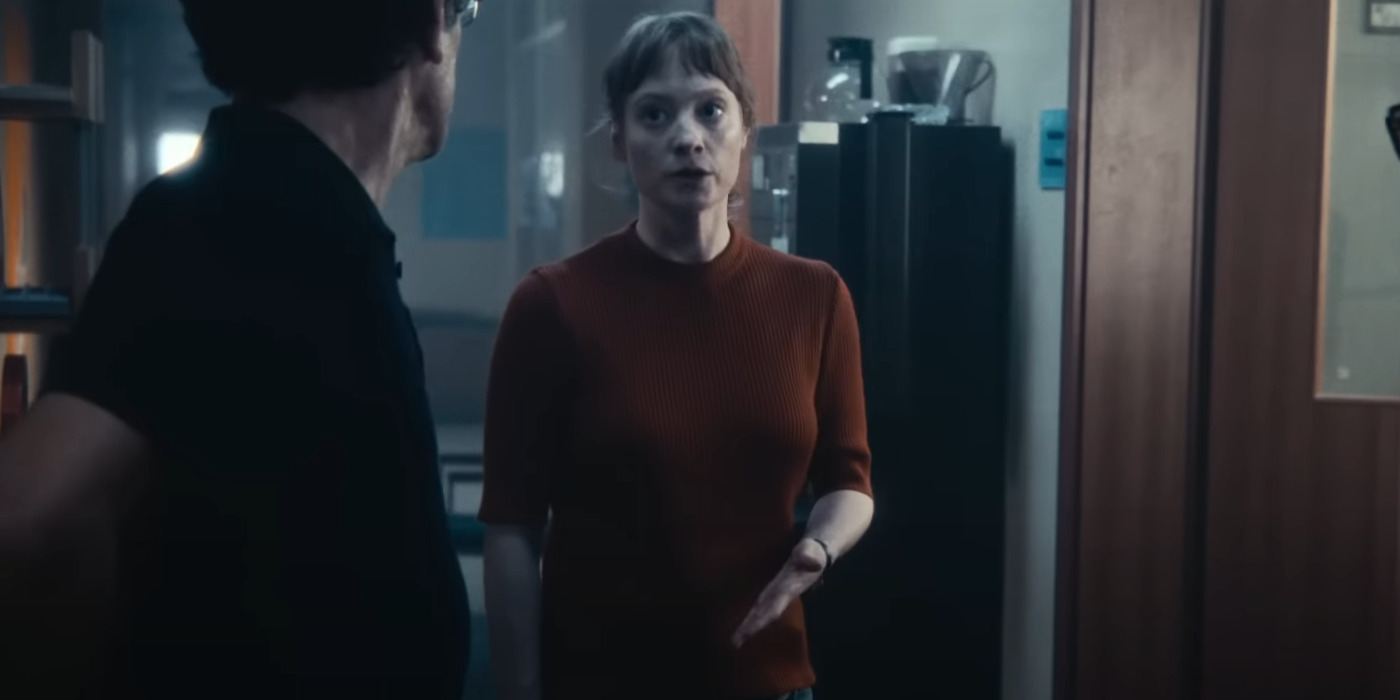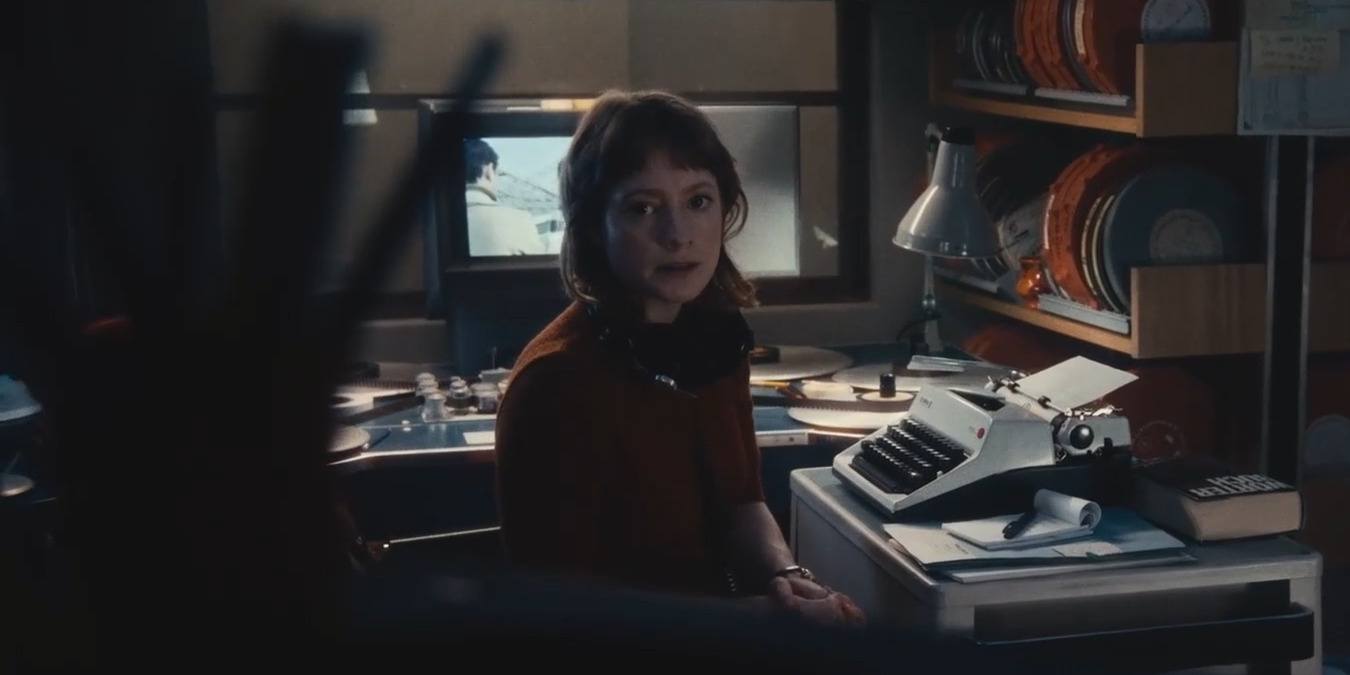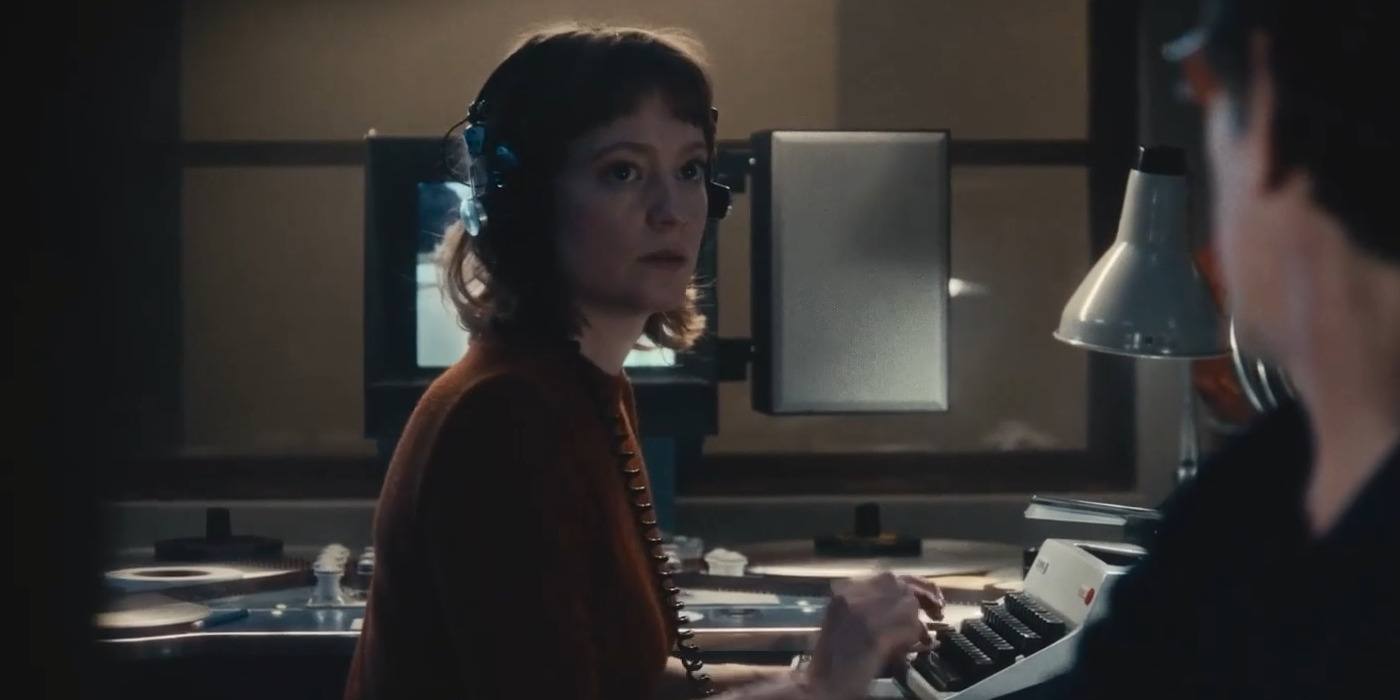‘September 5′ dramatizes the true story of the Munich Massacre, in which a group of terrorists infiltrated the Olympic Village in 1972 during the Summer Games and held hostage multiple athletes—most hailing from Israel. The film focuses on how a team of American journalists handled this situation as they found themselves upholding the responsibility of broadcasting this horrifying attack as it unfolded a few hundred miles away from their control room.
The on-screen narrative equips various real-life figures, including Roone Arledge, Geoffrey Mason, and Marvin Bader, to depict this story. However, despite its close connection to reality, a few characters who made up the rest of the broadcast production crew invite some doubt regarding their off-screen origins. For the same reason, the audience must be compelled to grow intrigued by Marianne Gebhardt, the German translator on Geoffrey’s team.
Marianne Gebhardt is a Composite of Many Real-Life Voices
For the most part, ‘September 5’ retains remarkable authenticity to reality. It takes various measures—from realistically modeled set designs and archival footage to consultation with real-life accounts—to ensure its roots in reality stay firm. Even so, screenwriters Moritz Binder, Tim Fehlbaum, and Alex David employ some creative liberty as necessary. Marianne Gebhardt’s character is an example of this. Real-life people who helped with German-to-English translations were most likely present in Munich’s ABC Sports control room during the 1972 broadcasting of the hostage situation in and out of the Olympic Village.

Yet, there wasn’t a singular, distinguishable individual who could be pitched as Marianne’s real-life counterpart. In fact, as actress Leonie Benesch’s research into the matter revealed, translator as a discernable job title wouldn’t have even existed back then. Instead, she learned that women from posh backgrounds would have likely taken up the task of translating for the crew. For the same reason, when it came to filling up the narrative need for a translator, the filmmakers came up with the fictionalized character of Marianne.
Still, certain measures were undertaken to ensure that Marianne remains realistic despite her fabricated origins. Notably, Benesch had conversations and discussions with an older female translator who works in Berlin to get some references for her character. This allowed her to understand the nuances of the complicated profession and deliver a veritable performance. Additionally, on top of serving a crucial in-universe purpose, Marianne also informs a thematic aspect of the narrative. As a woman and a German, she occupies the minority representation within the story whose input remains crucial to the narrative.
Leonie Benesch Drew From Her Life Experiences to Portray Marianne Authentically
One of the most defining contributions of Marianne’s character to the narrative remains her uniquely German identity in a roomful of primarily Americans. ‘September 5’ takes place in a precarious Post World War II period wherein the country was still recovering from the damaging national and global impact of its previous Nazi regime under Adolf Hitler. Consequently, the terrorist attack—which mainly targeted Israeli-Jewish athletes while they were on German land—became an inherently sensitive matter.

Director Tim Fehlbaum, his co-writers, and actress Leonie Benesch were aware of the same as they went into crafting Marianne’s storyline. For the same reason, they wanted to infuse the translator’s character with all the nuanced emotions that must’ve informed the regular German experience at the time. On her part, Benesch mined her own lived experiences to gain inspiration for this aspect of her on-screen counterpart. While the actress could never truly know the reality of being a German in the freshly post-WWII political and cultural landscape, she was well-versed in the complications of the mixed feelings of national pride and shame that Marianne carries with her.
In 2013, Benesch—hailing from Germany—moved to London to attend drama school at Guildhall School of Music and Drama. Naturally, the move put her origins in stark focus despite the generational differences. As such, the actress understood the more nuanced aspects of her character and was able to put it to the forefront with success. Consequently, Marianne’s character is able to put an extra layer of cultural context over the overarching narrative, further grounding the story. In a conversation with The Wrap, Benesch discussed her character and her connection to the complicated yet vital nod to German guilt.
“I was very concerned with getting the tone right,” Benesch said. “Being a German and having been raised with the culture of trying to take responsibility for what the country has done, I did not want that to be a moment of self-pity. We discussed it a lot. That ended up being the trickiest part, which I didn’t expect going into it.” Ultimately, this aspect of her character becomes a foundation that heightens her realism. Thus, even without an actual real-life counterpart, Marianne remains a notably realistic character.
Read More: Marvin Bader: What Happened to the Ex-Operations Head at ABC Sports?


You must be logged in to post a comment.